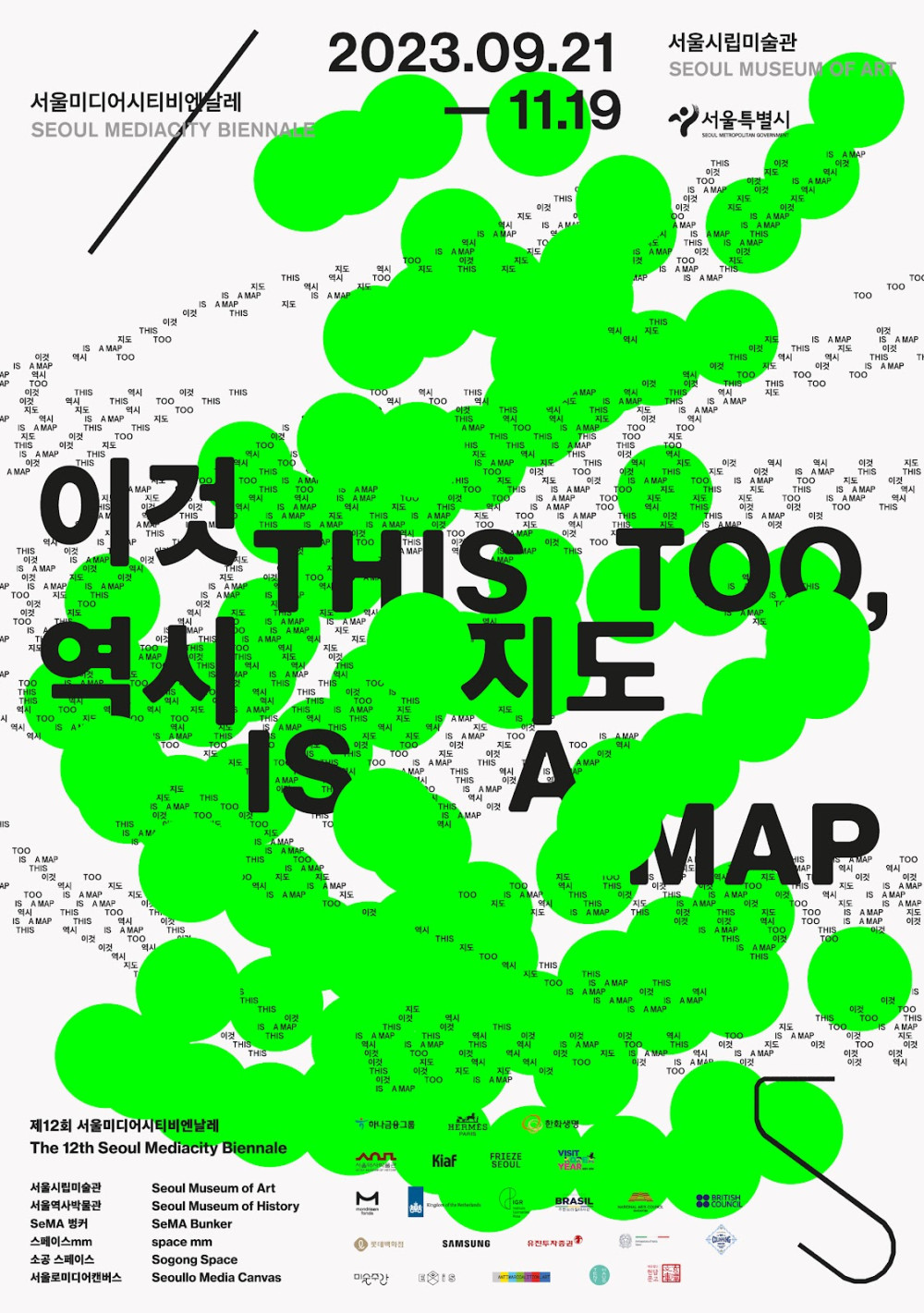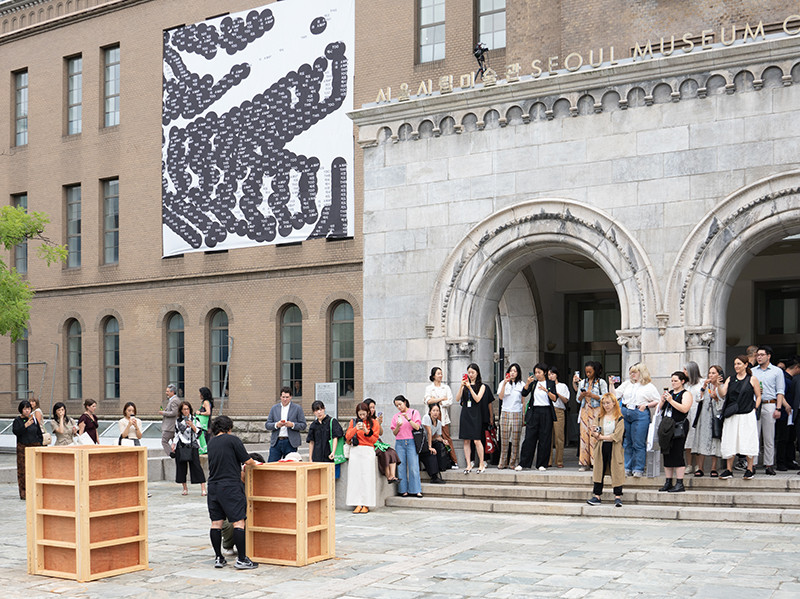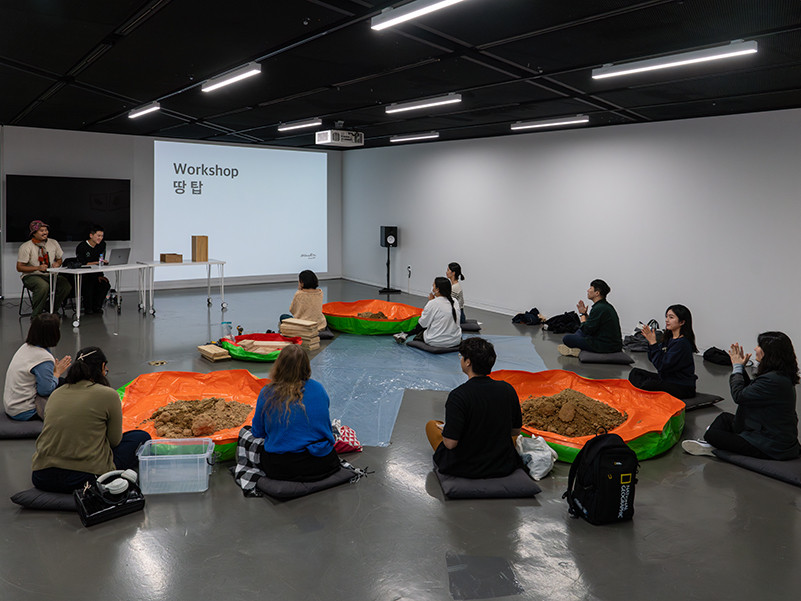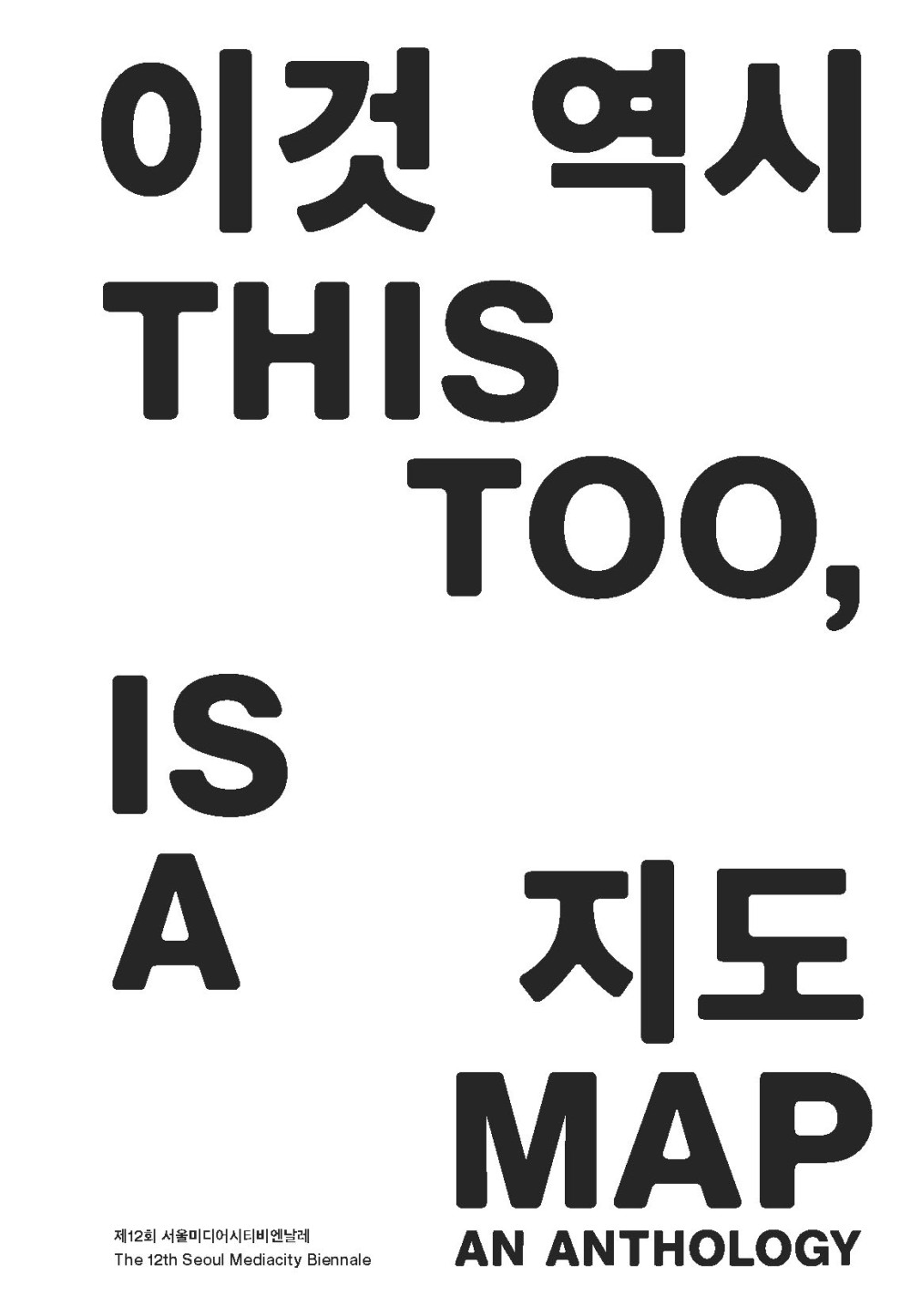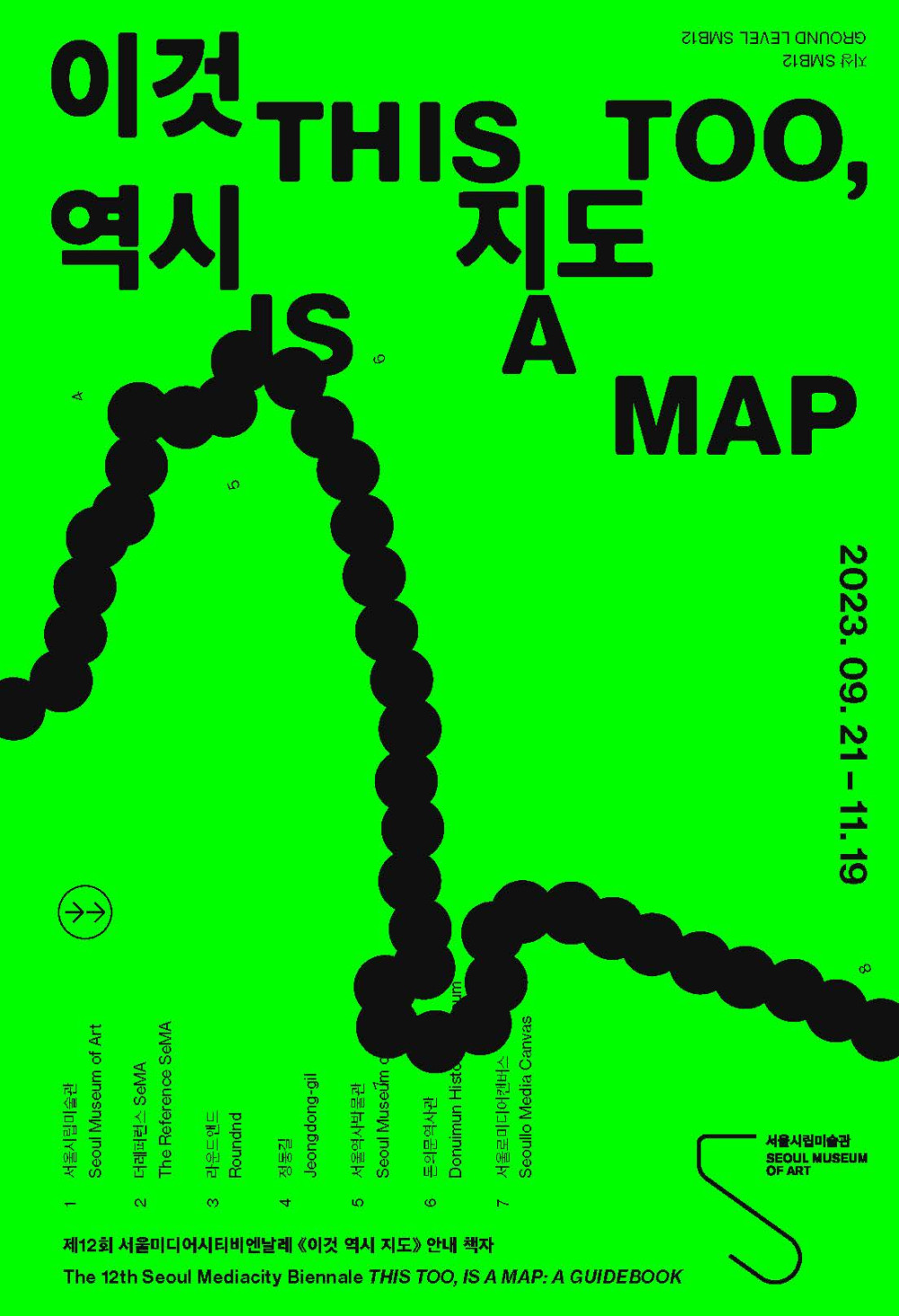
ikkibawiKrrr (Gyeol Ko, Jungwon Kim, and Jieun Cho) develops visual research stemming from their longterm engagement with conditions of migration. The collective’s artistic practice began in the late 1990s, focusing on collaborations with migrant workers and communities in South Korea, and has since extended into explorations of the movements of plants caused by industrial development and the entanglements between plant and human diasporas, industrial civilization, and natural phenomena. In the Korean language, ikkibawi means “mossrock” and Krrr is an onomatopoeic expression. Moss is a plant species that adapts to diverse environments, including those that appear otherwise uninhabitable such as rocky ledges on mountainsides. It is exceptionally resilient and able to survive under extreme conditions, since it does not have roots and thus easily reproduces, even when uprooted from its place of origin. A new iteration of Earth Monument commissioned for SMB12 brings together ikkibawiKrrr’s past and present investigations. Three groups of soil monoliths stand in the museum’s courtyard, evoking a small town or newly developed city, composed of a mixture of soil, debris, and trash collected from the outskirts of Seoul’s satellite cities. Formerly home to industrial complexes, these cities were also home to the migrant communities that used to work in the factories, which are now being replaced by apartment blocks. As redevelopment has led to the displacement of migrant workers and dissolution of their communities, large plots of trees—some of which are a hundred years old—have also been uprooted, cut down, or displaced. The transfer of soil that used to connect communities and trees alike to the city center speaks to the movement of human and nonhuman individuals and communities across the country, as well as corresponding realities of migration and the bureaucratic boundaries of life.





